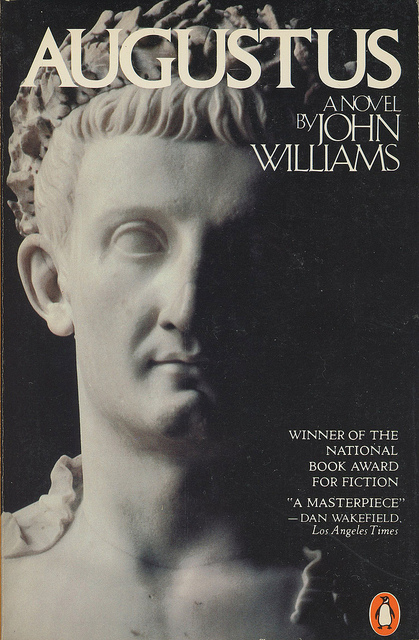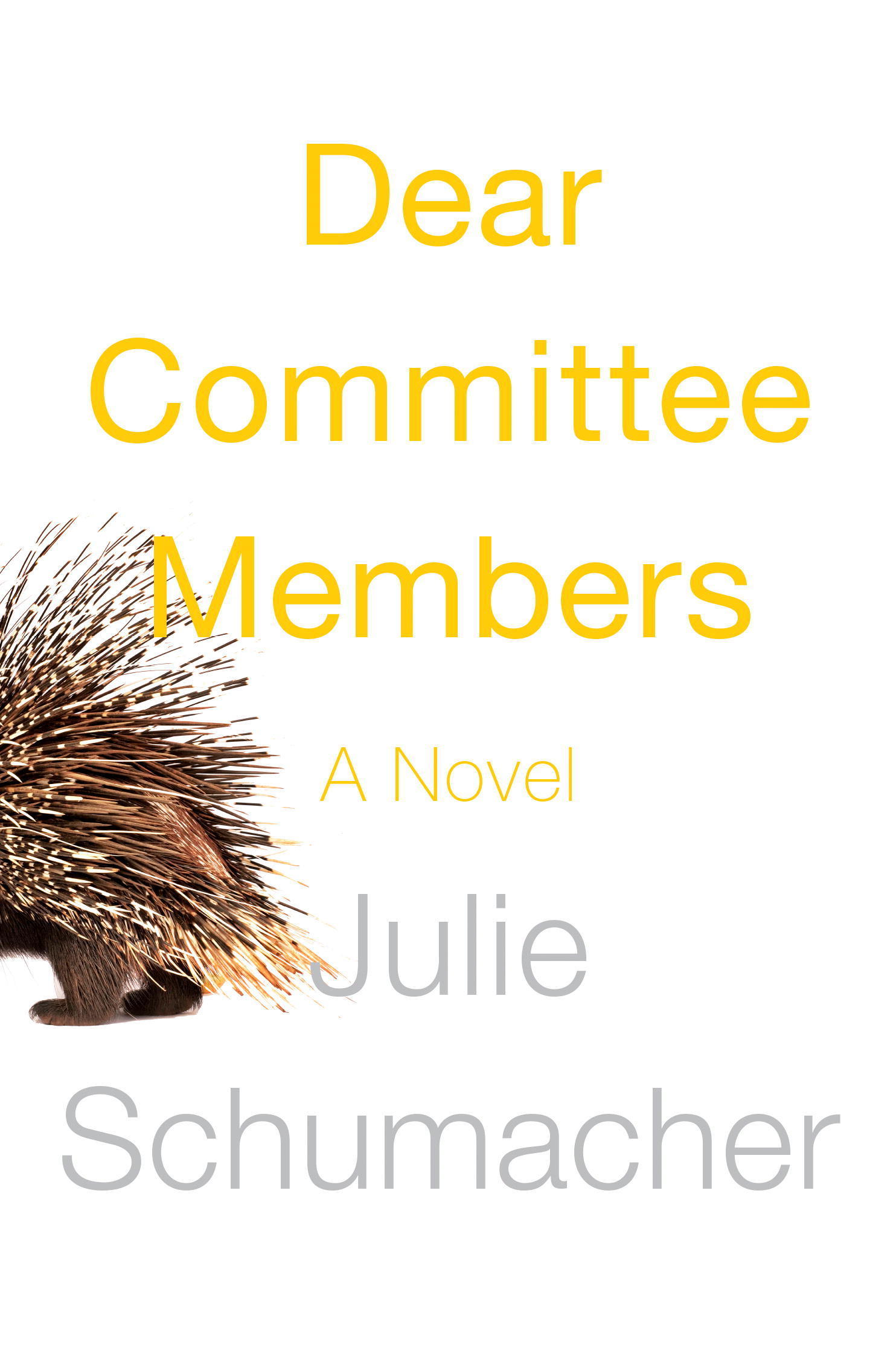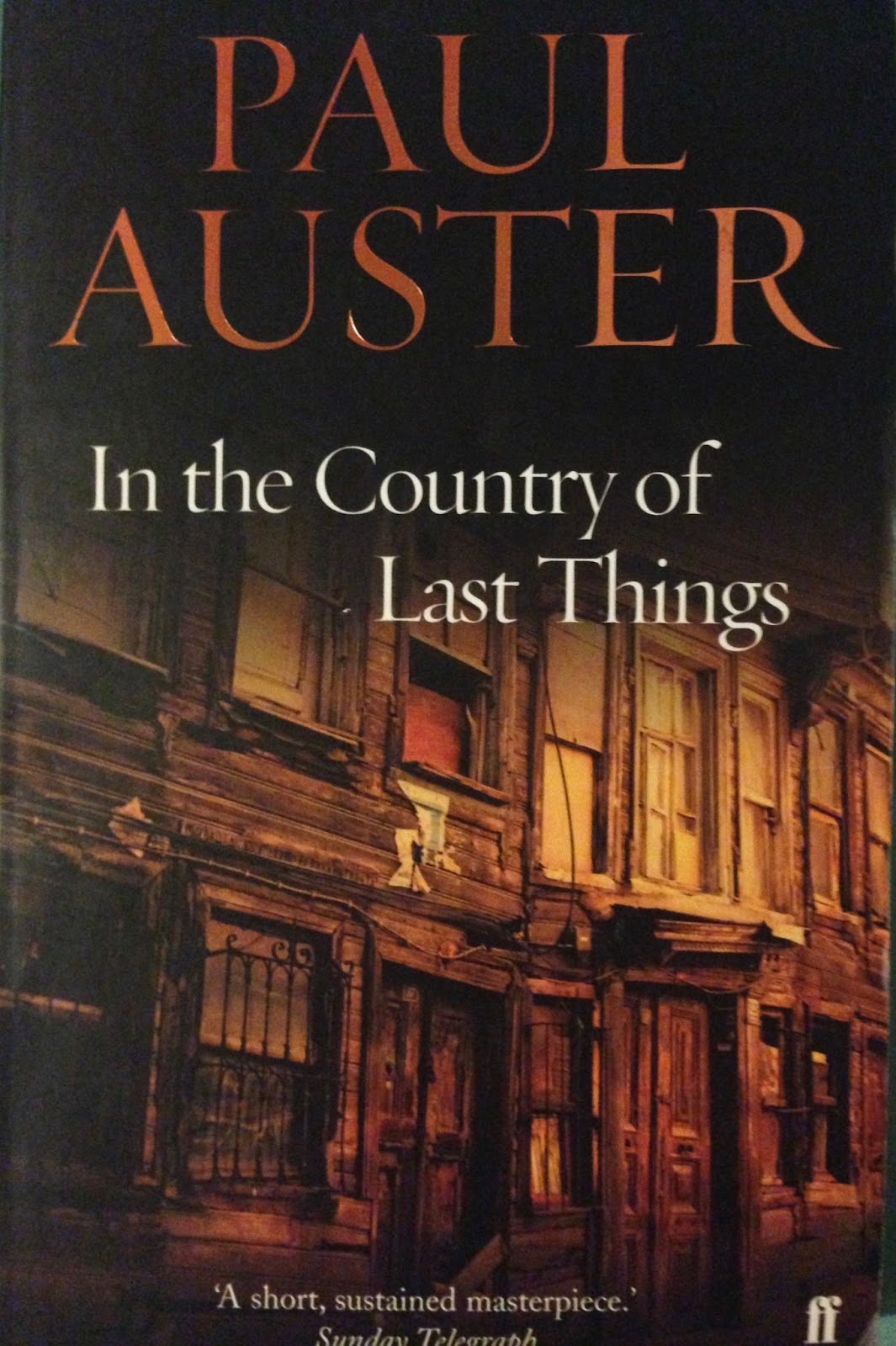
July 1 marks the 49th anniversary of the founding of the United States Postal Service. Sadly, in more recent years, mail carriers have been weighed down more by Amazon packages than envelopes. Receiving a handwritten letter has indeed become one of life’s rare pleasures, so if an empty mailbox is getting you down, consider reading an epistolary novel. The following books are some of our favorite examples of the genre.
Augustus by John Williams

Williams is known primarily for Stoner (1965), a magnificent and, until recent years, shamefully underappreciated novel. But in his own time, he was perhaps better known for having written Augustus, which won the National Book Award in 1973 alongside John Barth’s Chimera. The book tells the story of Octavius Caesar, who inherited rule of the Roman Republic after the murder of his father, Julius Caesar. It’s a deeply personal tale, taking readers into the mind of the new emperor and those around him—made all the more powerful in that the entire novel is comprised of letters, dispatches, and memoirs (all based on Williams’s exhaustive historical research) that document Octavius’s attempt to live a good life in spite of the corrupt world around him. It spoils nothing to reveal that Augustus features one of the best death scenes in modern literature. —Bruce Falconer
Gilead by Marilynne Robinson

My love for this novel is so great that one of my professors once told me, “You practically glow when you talk about that one!” It’s true, and apparently Barack Obama feels the same. Written as a stream-of-consciousness letter from dying Congregationalist minister John Ames to his young son, the novel features at its heart the minister’s deep love for his life on Earth. In fact, my two favorite lines in the novel (and believe me, they have tough competition), are two of its simplest: “This is an interesting planet. It deserves all the attention you can give it.” Anyone who has grown up in conservative Christianity knows that the opposite is often preached—that to love the world can feel akin to committing an egregious sin. How wonderful to hear instead from a preacher, albeit a fictional one, that this world is a gift, and a hard one to leave behind. —Jayne Ross
Dear Committee Members by Julie Schumacher

Epistolary novels are difficult to pull off. Those that leave you in stitches of laughter about the horrors of modern academia? Nigh impossible. Jason Fitger, the literature professor penning the endless letters of recommendation that comprise Julie Schumacher’s witty novel, puts the “pissed” into “epistolary,” as the jacket declares. —Stephanie Bastek
Pamela, or Virtue Rewarded and Clarissa, or, the History of a Young Lady by Samuel Richardson

Born in 1689, apprenticed as a printer at 17, and the proprietor of a successful printing business, Richardson did not publish his first novel, Pamela, until he was 50 years old. Considered to be the first modern novel in English, it was followed by Clarissa, the first psychological novel in English and one of the most admired. At nearly a million words, Clarissa is also easily the longest. The title character in each of these epistolary novels faces a serious #MeToo situation. Pamela is a 15-year-old servant girl who is at first propositioned and later assaulted by her wealthy employer. Clarissa comes from a family of recent wealth, and her tormentor is a man of even greater wealth, who has the telling surname of Lovelace. Clarissa is by far the more complicated of the two novels, but its length means, as Samuel Johnson once wrote, that if you read it for narrative thrust, “your impatience would be so much fretted that you would hang yourself.” Fortunately, there are abridged versions available. —Robert Wilson
Possession by A. S. Byatt

In digging up recommendations for this list, I was surprised to find A. S. Byatt’s Booker-winning novel—which I last read one steamy summer in high school—still on my shelf. With Zoom video calls rapidly draining me of my will to communicate, it seems like high time to return to the epistolary lessons of this novel, which laces the correspondences of two Victorian poets with the lives of two young scholars researching them. The Victorians did a lot of things wrong (like sex!), but they definitely did letters right. —Stephanie Bastek
Frankenstein by Mary Shelley

No list of epistolary novels would be complete without Frankenstein, a large portion of which unfolds through Arctic seafarer Robert Walton’s letters to his sister Margaret. I first read the novel in high school, and I almost certainly did not appreciate it enough (although I did scribble such insightful notes as “ALLUSION” and “TRAGIC FLAW” in the margins every few pages). I do, however, remember finding it more exciting than most of the books I had been forced to read. A corrupted scientist? An emotionally tormented monster? A doomed love story? No wonder Shelley’s classic—in all its dark, gory complexity—has remained a staple in high school classrooms and beyond. —Jayne Ross
In the Country of Last Things by Paul Aster

Paul Auster is one of my favorite writers, but his work can be hard to crack—I disliked The New York Trilogy when I first read it. But The Invention of Solitude, his first book, tuned me into his wavelengths, and I’ve been an avid reader ever since. This novel, In the Country of Last Things, is an equally good entrée into Auster’s work. It describes a postindustrial world that, like the many finely wrought dystopias, could easily be our own. But its narrator, Anna Blume, is a steady light in the darkness, and her journey to find her possibly dead, long-lost brother raises meaty existential questions. —Stephanie Bastek

